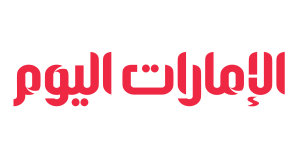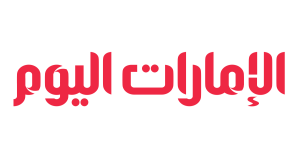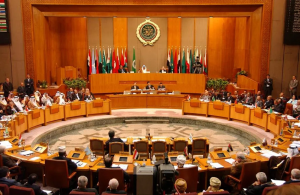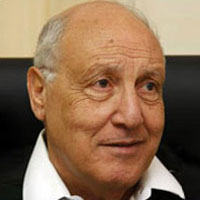I and others wonder about the accuracy or truth of serious leaks circulating on communication platforms. We imagined that some of these leaks were released by media and intelligence agencies to gauge public opinion and reactions if a certain policy were implemented. We also imagined that most people tend to believe these leaks. This tendency, in our view, is due to the atmosphere of secrecy and opacity becoming a constant in political work in recent years, with significant progress made in creating, crafting, and presenting leaks. Leaks now appear more attractive and rely on more advanced means of dissemination. We also imagined that behind the widespread phenomenon is the use of artificial intelligence, to the extent that we now see presidents declaring wars who are not truly what they say.
There is no doubt in my mind, and I believe in others’, that the intensified efforts by the United States and Israel to create a different Middle East are behind the increased interest in producing and analyzing these leaks. There is great hope, as well as fear, that these leaks are roadmaps for the “different Middle East” people to walk toward an unforeseen future. The roads and their maps are no longer defined and limited as they were two or three decades ago; they have certainly changed. Their entrances, the hardships of walking them, and their exits have all changed. In other words, the foreseeable future differs from the prescribed one.
Now that alternative paths have disappeared under military, political bombardment, new terrorism, or mere neglect, we no longer have roads to walk toward a promised future. What is presented to us now are the different roads proposed and continuously presented by recent leaks, most of which lead to a future that is naturally different.
Walking Unfamiliar Paths
In recent years, we have been walking unfamiliar paths, driven by leaks and policies that claim to protect our peoples but were not understood or justified at their inception. For example, after the initial stages of our independence, we saw ourselves as Arabs. Most of our peoples, especially the youth, were proud of this identity. We saw ourselves and the outside world saw us as a people in the most modern sense of the term. Whether Moroccans, Gulf Arabs, Egyptians, or Levantine Druze and Alawites, we were Arabs. It does not bother me to note that Arabism and Arabs now express decline, doubts, and regret—accusations or condemnations created by leaks, plans, and roadmaps drawn for us and which we have followed.
The paths have changed. Moroccans took one path, Algerians another, and Libyans a third. Now, they talk about a path for Gulf Arabs different from all other Arab paths, with specific paths for each Gulf state, different from each other. Some argue that most Arabs—Moroccans, Levantines, Egyptians, Sudanese—are now running toward the routes taken by Gulf states, or, for example and as the imposed reality, toward the path decided for Gulf Arabs, Moroccans, Egyptians, and perhaps the new Syria: the Abrahamic path. Whether this claim is true or not is not denied by daily leaks from Israel and these countries. Some leaks confirm it with threats of invasion, collapse, or assassination, and some come in more malicious and vile packages.
Some believe that the enormous Gulf funds that entered President Trump’s pocket or Washington’s budget were part of exchanges, meaning the state that owns this money should expect something in return from America. The naive response comes from those who know that relations between states are built on interests, not exchanges. And wasn’t exchange, in most cases, an interest in any international relationship?
A New International System
Our talk about international relations leads us to new developments and the expected impetus to stir stagnant waters due to leaks and other factors of declining power and status. It leads us to a conference hall in China that recently hosted leaders of the Shanghai Cooperation Organization member states. The conference languages were many due to the diverse cultures of twenty countries from Eurasia, Africa, and the Middle East. The tone of the speech was closest to what I heard at a conference held in Cairo in the early 1960s: the tone of a challenger confident in what he says, expects, and wants to do. I heard the Chinese president, as host and as leader of a new global order project, say they are working toward a just new system. As the leader and organizer of this conference, he pointed out that the conference represents more than half of humanity.
In other words, he nearly declared the end of Western dominance, which lasted uninterrupted for many centuries, and perhaps by this meant to announce the imminent birth of an international system that neither dominates, oppresses, boasts, nor allows the extermination of indigenous peoples of any faith, color, or race.
This talk also leads us to deep and optimistic reflection on the boiling state at the bottom of the international system and many regional systems. Experience has taught us that in times of turmoil, countries, especially those of the Global South, should be cautious when making decisions. They should also gather their peers with reputation, status, and experience to collectively seek an appropriate formula for what to do to meet this new international system on a path they and their peers help draw. I followed Narendra Modi, India’s prime minister, and I am somewhat angry with him, precisely defining his country’s place among the Shanghai group countries. I am confident that Jawaharlal Nehru’s experience illuminates all the necessary lights for him, which remained dark for decades after him.
At that time, seventy-five years ago, Nehru and his peers were busy drawing a roadmap based on an innovative political philosophy titled “How to maintain your country’s security and independence amid the signs of building a new international system.” They contemplated, met, and settled on a unified foreign policy based on the principle of non-alignment. But in our time, with the new international system about to emerge, the Indian prime minister proposed adhering to a foreign policy based on “balanced alignment” with the poles of the new system, but a flexible and active alignment on specific international issues carefully planned. The proposed alignment should be based on strong will, vast natural and human resources, a free and clear political philosophy, and readiness to strongly pressure the poles of the new international system from positions of strength, understanding, and solid alliances within the institutions of this system.
Longing for an Effective Arab Bloc
This tangible longing for a ready Arab bloc with a philosophy to be an active party awaiting a new international system is justified. Arabs undoubtedly realize that they will not have what guarantees their security and independence except through their declared, strong, and urgent commitment to a philosophy agreed upon by all Arab states’ foreign policies, and that multiple, conscious, and balanced alignment is a goal worth contemplation.













Recommended for you
Exhibition City Completes About 80% of Preparations for the Damascus International Fair Launch
Talib Al-Rifai Chronicles Kuwaiti Art Heritage in "Doukhi.. Tasaseem Al-Saba"
Unified Admission Applications Start Tuesday with 640 Students to be Accepted in Medicine
Egypt Post: We Have Over 10 Million Customers in Savings Accounts and Offer Daily, Monthly, and Annual Returns
His Highness Sheikh Isa bin Salman bin Hamad Al Khalifa Receives the United States Ambassador to the Kingdom of Bahrain
Al-Jaghbeer: The Industrial Sector Leads Economic Growth